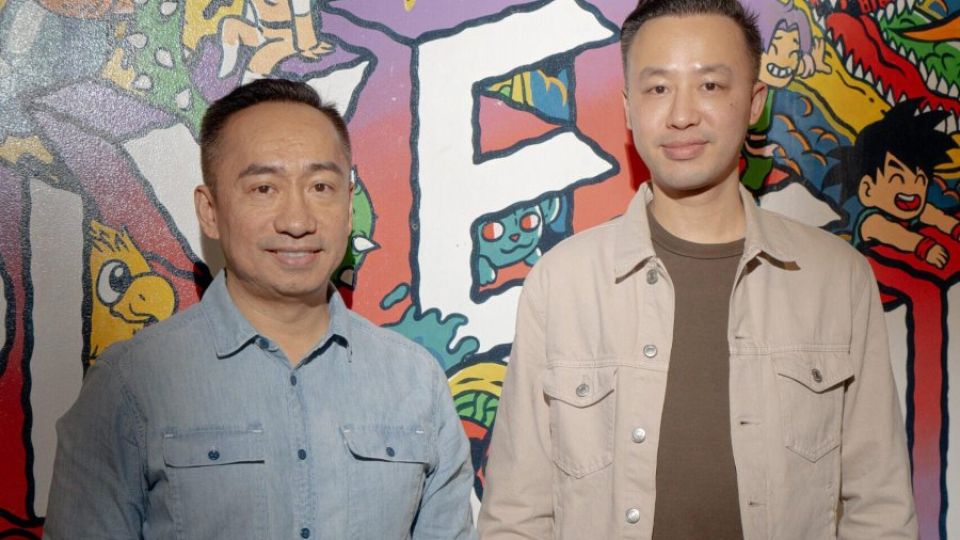MANILA (ANN/PHILIPPINE DAILY INQUIRER) – Nestled within the confines of Menarco Tower in BGC in the bustling landscape of Manila, Pixel Mafia stands as a prominent art services studio, contributing to the development of AAA games and movies.
With an impressive portfolio that includes collaborations with industry giants like EA, Blizzard, Activision, and PlayStation Studios, Pixel Mafia’s creative team has left their mark on popular titles such as “Horizon Forbidden West,” “Cyberpunk 2077,” “Halo Infinite,” and “Apex Legends”.
At the helm of this innovative studio are Coby Chan and Walter De Torres, each bringing a unique journey and wealth of experience to the table.
Chan, a Vancouver Film School graduate, found his niche in the gaming world after a stint in the film industry, while De Torres, initially on a trajectory towards consulting, discovered a passion for gaming that led him to become a Principal at Microsoft Studios.
Despite their success, the duo acknowledges the challenges within the gaming industry, shedding light on issues of overwork and crunch that often lurk behind the scenes of game development.
“At the end of the day, the cool thing about our business is that we get to be kids for a long time,” says Pixel Mafia co-founder Coby Chan as he recalls “Halo Infinite” as his favourite project to date.
Pixel Mafia’s office on a dedicated floor encapsulates the realisation of a childhood dream. This unique workspace surpasses the conventional boundaries of a corporate office, seamlessly blending work and play.
Here, arcade machines, the latest gaming consoles, and cutting-edge PCs aren’t just leisurely distractions; they are integral components of the workflow.
Co-founder Walter De Torres emphasises that Pixel Mafia stands apart as a creative hub, distinctly different from the ordinary corporate setup – an environment truly dedicated to the craft of entertainment.

Pixel Mafia as a matter of time
After first crossing paths in EA between 2003 and 2004, it would take a couple of years until both Chan and De Torres would again work together. Collaborating on “Gears of War” under Microsoft would eventually lead to the creation of Pixel Mafia.
Chan shares, “Games were becoming so huge that it needed hundreds of people and several companies to make a AAA title—we found ourselves traveling all over the world in search of these partners. And that’s when the light bulb moment came up, that maybe we could do this ourselves. After all, we could never find the perfect company for us.”
But for De Torres, it was also a matter of things falling into place at the right time. He explains, “The industry itself was also transitioning. Ten years prior, the word ‘outsourcing’ meant giving them the easy stuff. But that was changing. We don’t need outsourcers anymore, but development partners that could problem solve, think on their feet, and work in-engine.”
It was during then that the pair decided to leave their jobs at Microsoft and move to the Philippines. Rationalising the move, Chan explains that they saw an opportunity in the country – a place ripe with interest in the craft, but without the infrastructure necessary to support it.
Nevertheless, the decision carried with it a considerable amount of risk. After all, they had a stable career in Vancouver.
Calling it crazy seems to be an understatement but their recent successes dictate that the jump paid off. And for De Torres, he attributes their achievements to their separate backgrounds. He adds, “By being able to marry the production side and the content side, it just worked. We knew all the pain points from both sides.”
Partners, not assistants
During the almost one-hour conversation, it was made clear that the mere mention of outsourcing was taboo in the Pixel Mafia office – it was practically an insult to them. But, what does it mean to be a development partner instead of an outsourcer?
Chan explains that there is a considerable range in the types of engagements that they get. On one hand, clients approach them with very broad ideas of what a game is to be. They come in to conceptualise the visual side of things and build it from the ground up alongside the developer as other elements such as the story and the gameplay take shape.
In other cases, for more established IPs such as “Apex Legends” and “The Sims,” the studio comes in to conceptualise how new characters and skins would look like.
Beyond aesthetics, De Torres adds that Pixel Mafia also contributes to determining the workflow. And in the stages of production, this involves anything from managing schedules to monitoring budgets.
It’s the little things
As video games have gotten larger and larger in past years, so too has the body of work that goes into it. And with much to do, unfortunately, not everyone gets to take centre stage. Not everybody can design the main character or decide on the core gameplay mechanics. Someone has to do the “dirty work” and design the signage, the wallpapers, and even the rubble.
It isn’t glamorous and it tends to be overlooked and forgotten altogether. Nevertheless, when your game is regarded as a labour of love, best believe those minute details were noticed and appreciated.
“For the untrained eye, when you play a game and it’s missing those small details, it triggers your brain that something’s off. Especially for more realistic games, when something you’re used to seeing outside is missing on the screen, you can’t pinpoint it, but you know it doesn’t look good enough. It’s the small details that make all the difference,” explains Chan.
And while these complete the experience, De Torres shares that in some cases, it can make or break your game.
“I’ve learned the importance of sweating over the details. For example, designing the movement of a reticle. When you get it right, nobody talks about it. But when you get it wrong, you’re going to have a whole board of people talking about how bad that one little feature is. It’s hard to appreciate when everything is there and everything is working great.”
Cultivating creativity and passion
Chan and De Torres both share the dream of someday becoming one of the top content providers in the world. And part of the journey to getting to that goal is bringing in the various things they’ve learned throughout their time overseas; the technical know-how and the very culture of their previous studios into Pixel Mafia.
Chan shares, “There are good games out there because you feel the passion behind them.” And a good working environment goes a long way. When people enjoy what they’re doing and are in a place that is conducive to that, it reflects on their work.
“That is the flavour and the culture that we’ve brought into the studio – the passion and being proud of what we’re doing. The places we used to work at before, we had that. That’s why we do things that are still very new. Why do we do Fried Chicken Fridays? Why do we let people play video games?” Chan explains.
However, there’s only so much that lip service can do. No amount of free food or band-aid solutions can cover up a terrible working environment. Fortunately, to address issues of overwork in the game development industry, Pixel Mafia is doing much more than Fried Chicken Fridays.
Both take into account their tenure in the industry, recalling that the culture they grew up with was working until you couldn’t. De Torres recalls that people then even wore it like a badge of honour. Overworked employees relished the fact they spent 55 straight days at work or that they did 16-hour days on weekends.
Since time has only proven that such a setup is unsustainable, where people in the industry were experiencing massive bouts of burnout, having troubles with their families, and not having a life outside of the office—they knew they had to adjust, not just for their employees but for themselves.
But fixing such a deeply ingrained issue—they couldn’t simply reduce the workload—they had to get creative: Shuttle service and free lunch.
During the transition from working from home to going back to the office, Pixel Mafia, upon conducting a survey, found that their employees were concerned that traveling was both expensive and time-consuming. Essentially, it was much easier to just stay at home.
Deciding to provide a shuttle service and free lunch has proven effective and has paid off in spades. With a set pick-up and departure time both in the morning and the evening, their employees had to have a very productive eight hours in the office or choose to be left behind. It quite effectively removed the need for overtime.
De Torres shares, “I think our staff is pretty happy at this point, knowing that we don’t work weekends and holidays. The studio is empty by 7.30. There’s nobody here except for maybe the janitor and me turning off the lights.”
The Philippines as an emerging market for gaming development
The sky is the limit with the growing game development industry in the Philippines.
Chan explains, “The industry is so nimble that we could create positions that we didn’t necessarily have yesterday. There are more and more games coming out. There are tons of jobs out there.” He adds, “We have this preconception that being an artist is not to be financially secure. Not anymore. We’ve seen people get married, buy homes, and start a new life that they didn’t think they could have before.”
As for what it would take for our growing industry to achieve its potential, De Torres believes that it’s only a matter of time.
“Over the last several years, it’s been easy to spot Filipino studios in the game credits. And when kids realise that “Overwatch,” “Apex Legends,” “Forza,” and “The Last of Us” were made here, all that’s doing is encouraging more people to get into the industry,” said De Torres.
Beyond wishful thinking, it’s a matter of fact that these minor contributions have brought the Philippines onto the game development map and into the eyes of the public. Chan shared with us that he was told by his friend in the UK that her son’s best friend wanted to work at Pixel Mafia after discovering that they worked on one of his favourite games.
And for both Chan and De Torres, excitement comes from the possibility that for each person that they train and develop under Pixel Mafia—like a seasoned Spider-Man in Peter Parker training the budding Miles Morales—they could one day open their own studio and further bring the country’s game development industry to even greater heights.







